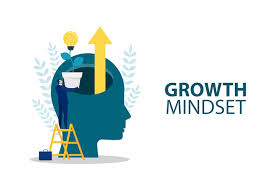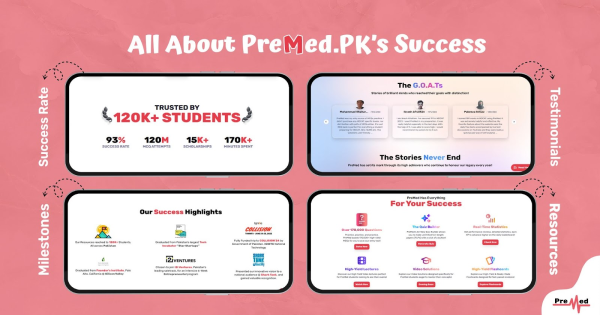In today’s rapidly evolving world, success depends not only on intelligence or talent but on how we approach challenges and learning. Carol Dweck introduced the idea of a growth mindset, believing that capability and intelligence grow when people work hard, stick with it and do what works.
In contrast, a fixed mindset is the belief that talent and intelligence are static traits — something you’re either born with or not.People who think they can become better learn from their failures, but people with a fixed mindset may believe it indicates they lack the skills required.
In this comprehensive guide, we’ll explore how to develop a growth mindset, why it matters, and actionable steps to shift your mindset for long-term success and self-improvement.

What Is a Growth Mindset?
Thinking in a growth mindset is to believe that your abilities can improve if you keep working, learning and trying again. Because of this mindset, people become strong, want to learn and are brave enough to face all sorts of problems.
Characteristics of a Growth Mindset
-
Embraces challenges
-
Learns from criticism
-
Finds inspiration in others’ success
-
Believes in effort as the path to mastery
-
Values learning over proving oneself
Growth Mindset vs. Fixed Mindset
| Aspect | Growth Mindset | Fixed Mindset |
|---|---|---|
| Challenges | Embraced | Avoided |
| Failure | Opportunity to learn | Sign of inability |
| Effort | Essential for growth | Seen as fruitless |
| Feedback | Constructive | Taken personally |
| Success of others | Inspirational | Threatening |
Why a Growth Mindset Matters
A growth mindset doesn’t just lead to better grades or career advancement. It impacts every area of life, including relationships, personal development, and mental health.
Benefits of a Growth Mindset
-
Improved Academic and Career Performance
Students and professionals who believe they can improve are more likely to seek help, try harder, and excel over time. -
Greater Resilience and Grit
A growth mindset enables individuals to recover from setbacks quickly and maintain motivation during tough times. -
Better Relationships
People with growth mindsets work on their relationships, believe in personal change, and are more forgiving. -
Higher Self-Esteem
Because self-worth isn’t tied to success alone, failure doesn’t erode confidence.
How to Develop a Growth Mindset: 10 Proven Strategies
1. Recognize Fixed Mindset Triggers
The first step is self-awareness. Start identifying when you hear that internal voice saying, "I can’t do this," or "I’ll never be good at it." These are signs of a fixed mindset creeping in.
2. Reframe Failure as Feedback
Instead of asking, “Why did I fail?”, ask, “What can I learn?” When you start to see failure as an opportunity to grow, it improves your ability to stay strong and learn new things.
3. Use the Power of "Yet"
Saying "I can’t do this" shuts the brain down. Instead, say "I can’t do this yet." That small word keeps the door open for growth.
4. Set Learning Goals Instead of Performance Goals
Performance goals focus on outcomes like grades or promotions, whereas learning goals focus on the process and effort. Instead of “I want to get an A,” try “I want to master this topic.”
5. Embrace Challenges
Step outside of your comfort zone regularly. Whether it's learning a new skill, taking on a difficult project, or facing criticism — challenges push you to grow.
6. Celebrate Effort, Not Just Outcomes
Recognize and reward effort, practice, strategy, and persistence. When you value the process over the product, improvement becomes inevitable.
7. Surround Yourself with a Growth-Minded Environment
Hang out with people who inspire you, challenge you, and believe in growth. Books, podcasts, mentors, and even social media feeds can shape your mindset.
8. Practice Self-Compassion
Be kind to yourself when things don’t go as planned. Replace self-criticism with curiosity and care. This fosters a safe mental space for growth.
9. Keep a Growth Mindset Journal
Write down moments where you chose growth over giving up. Reflect on what worked, what didn’t, and how you’ll improve next time. This habit reinforces your mindset shift.
10. Visualize the Process, Not Just the Result
Visualization is a powerful tool. Rather than thinking only of the result, picture the ways you’ll get there. This primes your brain to value effort and consistency.
Growth Mindset in Different Areas of Life
In Education
Teachers can encourage growth by praising effort and strategy over innate intelligence. Students with a growth mindset are more engaged and less afraid of failure.
In the Workplace
If workers have a growth mindset, they are stronger at getting used to changes, team up well with others and accept feedback.
Tip: Encourage innovation and allow space for mistakes. Make "failures" learning opportunities.
In Relationships
Partners with a growth mindset work on improving communication, understanding, and emotional intelligence.
Tip: Believe that people can change with time and effort.
Common Myths About Growth Mindset
Myth 1: Just praise effort, and everything will be fine.
Effort alone isn’t enough. You also need the right strategies, feedback, and reflection to truly grow.
Myth 2: You either have it or you don’t.
Like any skill, a growth mindset can be developed over time through practice and consistency.
Myth 3: It means being positive all the time.
No — a growth mindset is about honest evaluation, not blind optimism. It involves facing setbacks realistically and choosing to grow from them.
Growth Mindset Quotes to Inspire You
-
“Whether you think you can, or you think you can't – you're right.” – Henry Ford
-
“I am always doing that which I cannot do, in order that I may learn how to do it.” – Pablo Picasso
-
“It’s not that I’m so smart, it’s just that I stay with problems longer.” – Albert Einstein
-
“Failure is so important. We speak about success all the time. But it is the ability to resist or use failure that often leads to greater success.” – J.K. Rowling
Ilmkidunya
Top Contributors
Related Articles
Why The University of Faisalabad is the Ideal Choice for Your Future | A Complete Campus Life Experience
- Ilmkidunya
- 20/May/2025
PreMed.PK | Highly Rated Online Resource for MDCAT’25
- PreMed.PK | Highly Rated Online Resource for MDCAT’25
- 19/May/2025








.gif)


































